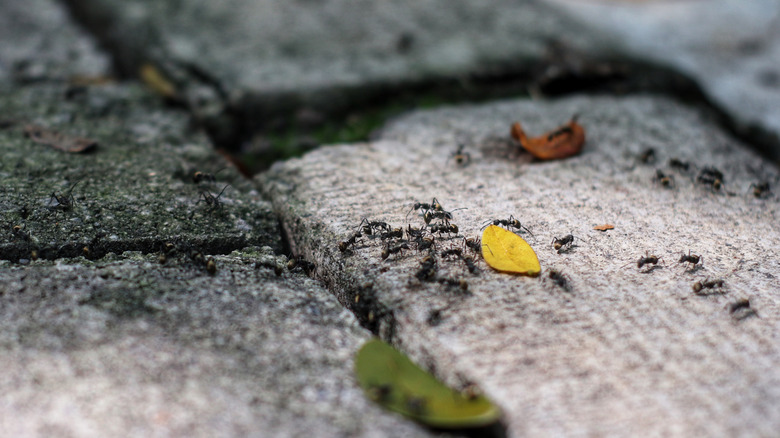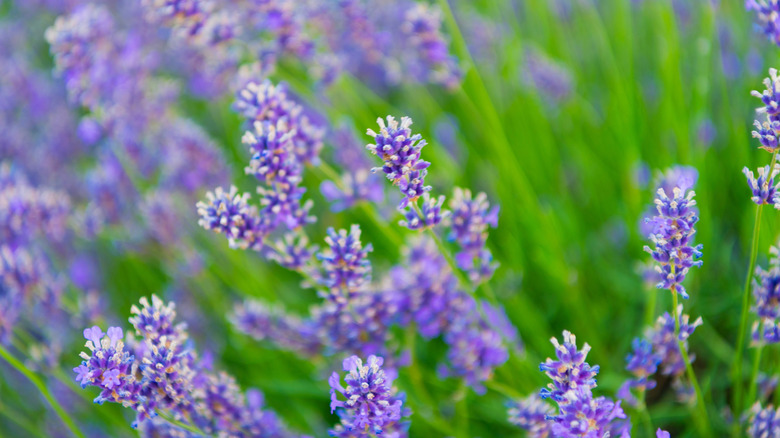Will Bay Leaves Keep Your Home Ant-Free? Here's What The Science Says
Ants are fascinating critters. Relative to their size, they're among the strongest creatures on earth. If all of the ants in all of the colonies of the over 12,000 species stepped onto a scale together, they'd weigh around as much as the human population. They're present on every continent except Antarctica, but their presence in your home is probably unwelcome. While a 1984 study showed that bay leaves (Laurus nobilis) are effective against cockroaches, there is currently no scientific evidence that they repel ants. In fact, researchers from Utah State University reported that bay leaves placed in a jar of food only worked when there were no insects present to begin with.
There is a lot of anecdotal evidence, however, that bay leaves are useful in keeping ants out of your home, and they're relatively harmless if you want to give them a try. They have a very low toxicity, so they're safe around kids and pets unless they're ingested in large quantities (though there is the risk of children and animals cutting the inside of their mouths with the sharp edges of the leaves). Pest management companies, homeowners, and YouTube creators recommend methods like crumbling up the bay and spreading it around, placing leaves on the ant's scent trails or in areas they enter the house, or even making a spray combined with other ingredients.
If bay leaves don't work, try other preventative methods
It's a good idea to know which kind of ants are in your home, but if you can't do that, there are methods that work on the most common ants you're likely to have. If these don't work, you need to find a way to identify the species. If you're not ready to engage a pest management company, your local county extension service might be able to help.
Diatomaceous earth, available at your nursery, home improvement store, or online, kills a number of crawling pests, including ants. Use a duster to spread the earth everywhere ants might be present. If you can locate the chemical trail the insects are using inside your house, wipe it with vinegar or soap to disrupt their pattern. Lavender oil, either as a spray or full strength, has many uses, including repelling ants. Clove oil and limonene, a compound produced by citrus oils, have also been shown to be effective against ants.
Preventing ants from making your home theirs mitigates the need for chemical insect control, but it may be only one tool for keeping your house ant-free. If there's a way to get into your house and the scout ant discovers food inside, the rest will follow. To keep ants out of your house, seal cracks and crevices, inside and out. Store your opened food in containers with tight-fitting lids, keep surfaces clean, do the dishes every day, and take out the trash and recyclables often. Leaky faucets can also be water sources for ants, and some even build their nests in the walls of the house. In this case, you'll need a professional to get rid of them.

